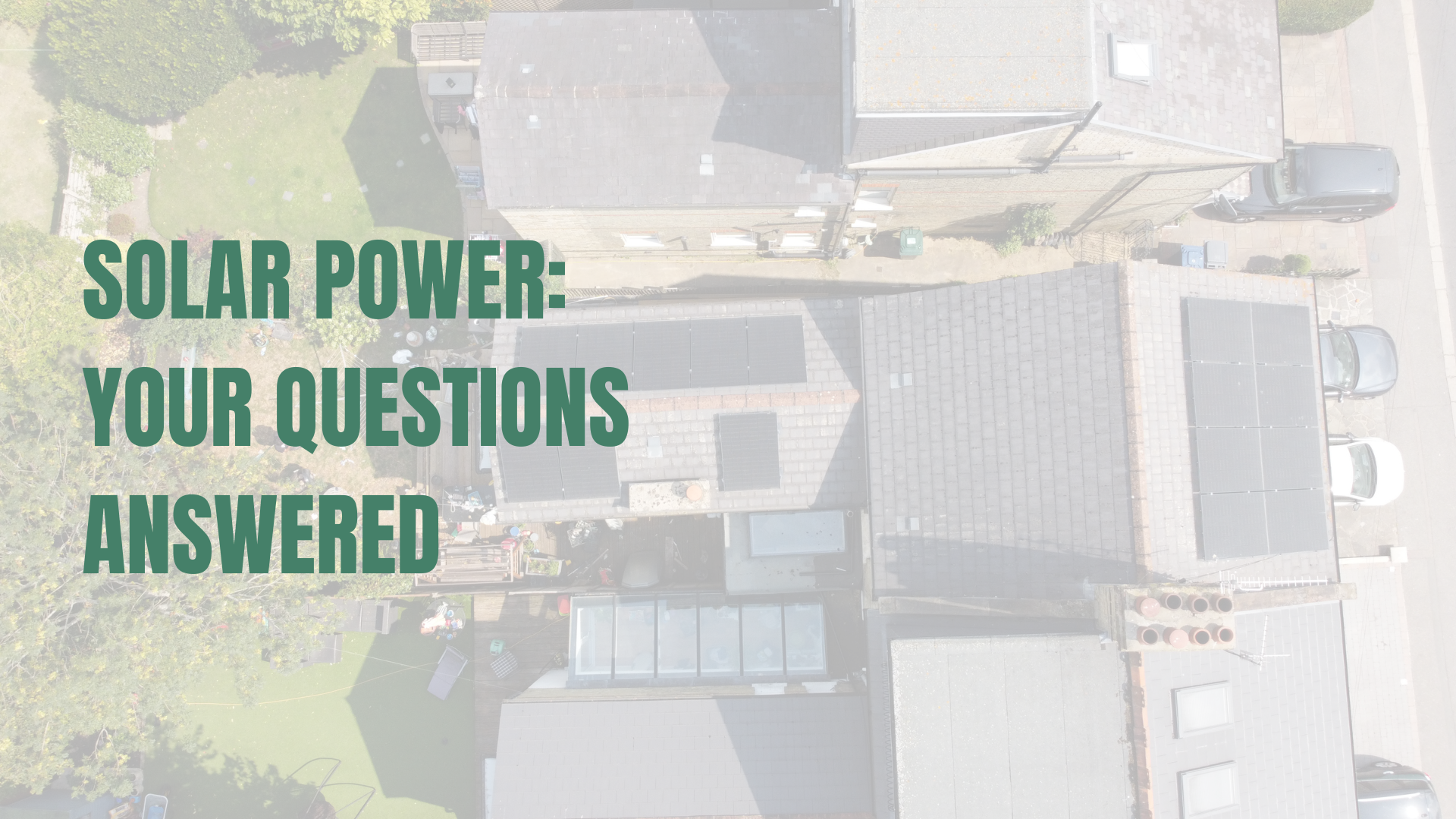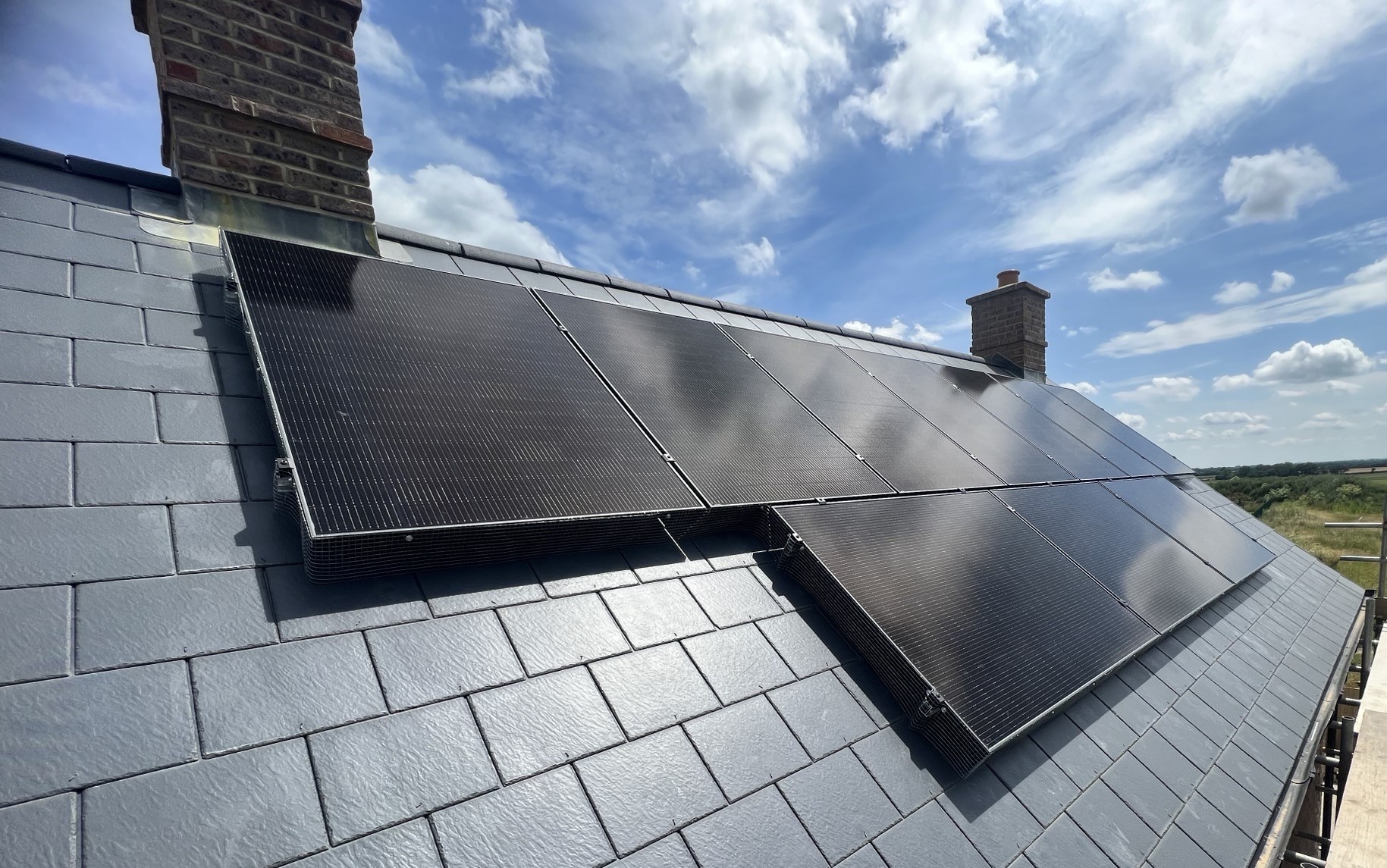As one of the UK’s leading renewable energy sources, solar power plays a huge role in powering our homes. Solar power attracts plenty of interest and unfortunately plenty of myths. To help homeowners and businesses understand the truth, we’ve compiled the most important solar energy facts, answering common questions about solar panels, solar farms, energy generation and environmental impact.
Do Solar Panels Need Bright Sunshine to Work?
Solar panels don’t need direct sunlight, they generate electricity from daylight, meaning they will still generate electricity efficiently on cloudy days, just at a lower output that bright, clear days. While more sunlight boosts output, modern solar panels are built to perform efficiently all year round.
Even in winter, solar performance is stronger than people may expect. The main issue with solar production throughout winter is not the lack of daylight, just that there are less daylight hours each day.
January to May 2025 saw the UK generating a record breaking 7.6 terawatt hours (TWh) of electricity through solar. March saw a 66% increase in solar generation year on year. These real world examples highlight some of the most impressive solar energy facts for the UK.
Do Solar Panels Stop Working in Very Hot Weather?
Extreme heat can slightly reduce solar panel efficiency, the impact, however, is minimal. Solar panel performance drops by just 0.334% for every degree above 25°C. With longer daylight hours and clearer skies, UK solar panels will still generate significant amounts of electricity throughout the summer months, with some households reducing their electricity bills to standing charge only over the summer months.
Is Solar Energy Expensive to Produce?
Solar energy is the most affordable renewable energy source in the UK. Prices have continued to fall, seeing a decrease by over 80% in the last decade. With solar becoming more affordable that ever, it is no surprise that the UK has seen over 206,000 installations in 2025, bringing the total of UK solar installations to over 1.85 million. As UK energy prices rise and solar prices fall, more and more homeowners and businesses across the UK are adopting solar for a sustainable, low cost power source.
Do Solar Farms Take Up Land That Could be Used for Farming?
Not necessarily, solar farms often coexist with agricultural use, creating additional income for farmers. Many solar farms are designed to allow animal grazing, supporting land management and biodiversity.
Developments in agrivoltaics mean crops can be grown beneath raised solar panels, offering multiple benefits, such as protecting crops from heat, frost and UV damage, while increasing yield.
Key Solar Energy Facts on UK Solar Farms
- Solar farms occupy less that 0.1% of UK land.
- Around 4 acres per megawatt (MW) of capacity us needed for new solar farms.
- Even with the UK’s Net Zero goals, future solar development would use less land than the UK’s golf courses.
Do Solar Panels Produce More Carbon than They Save?
Most solar panels repay their carbon cost within 3 years of use. Given that the typical solar panel lifespan is a minimum of 25 years, with most going on to perform efficiently for up to 40 years, they generate decades of zero carbon electricity after their carbon payback period has passed.
Are Solar Panels Recyclable?
Up to 99% of materials used to make solar panels can be recycled. Panels are made primarily from silicon, glass and aluminium, all of which can be split and recycled. Materials from solar panels can be recycled to make new electronic devices.
Does Solar Energy Go to Waste if it isn’t Used Immediately?
There are multiple systems in place to ensure solar energy is never wasted. With the addition of solar battery storage, surplus electricity can be stored for use later, in evenings or during low generation periods. Alternatively, excess electricity can be sold back to the grid through the Smart Export Guarantee, where you will receive payment for every kWh you send back to the grid.
Upgrading the UK Grid to Support Solar Energy
To meet future targets, the UK is expanding and modernising the electricity grid. The Great Grid Upgrade, the largest improvement programme in decades, is set to help deliver clean, secure energy across the UK, enabling more solar and wind power to flow where it’s needed.
Do Solar Panels Cause Glint and Glare?
No, solar panels are designed to absorb light, not reflect it. Modern solar panels are coated in an anti-reflective layer and made from ultra transparent glass, benefitting in less glare than common building materials such as windows, making them highly efficient in absorbing sunlight.
Will We Have Enough Clean Energy When it’s Not Sunny?
While solar output can vary, the UK is investing in battery storage technology, grid upgrades and flexible energy systems, allowing a mix of renewable energy sources to produce reliable, year round clean power.
Are Your Ready to Join the Solar Revolution?
Contact SolarTherm UK today for a free, no obligation quote and design, tailored to your property, usage and future energy needs. No hard sell, just honest, expert advice.
Your home. Your energy. Your future.





